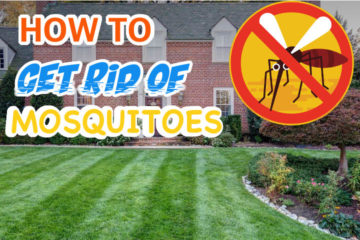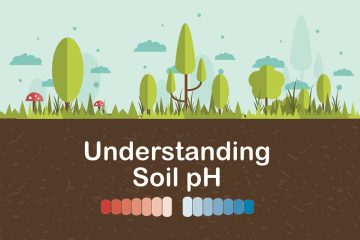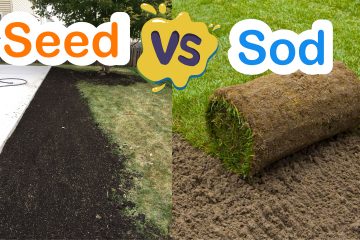We wanted to call this article, “C’mon over to micro clover” but thought that was a bit pushy. However, by the time you finish reading this, you may find yourself leaning a bit more towards using it in your lawn instead of the grass variety you are currently using. Clover actually has several advantages – and some disadvantages – that could make your lawn care needs a bit easier in the long run.
Advantages of an organic lawn using micro clover:
Less Fertilizer
Clover is a leguminous plant. That means it lives in symbiosis with bacteria that uses atmospheric nitrogen and actually ‘shares’ it with other nearby plants. This results in you not having to feed it fertilizer in order to get the nitrogen it would need to be healthy and strong. MicroClover naturally feeds the grass with nitrogen. This makes the grass green, thick, healthy and vigorous.
Less Mowing
Did someone say they would love a stunning green lawn they never had to mow? Well, clover is that product. Micro clover, for example, will not grow to much more than 6-inches high. Even if you choose to trim it on occasion, the clover will never grow beyond 4-inches in height.
Less Weeding
Clover resists weeds. In fact, as an organic lawn, micro clover will actually smother weeds and – get this – will also attract fewer insects. Oh, and if your neighbor has a dog that likes to pee in your yard, clover is resistant to that. In other words, yellow patches will be a thing of the past.
Environmentally Friendly
With less need for fertilizer and irrigation, this is a low maintenance, low-cost solution.
Micro Clover Adapts Easy
MicroClover is safe to use anywhere you would grow plants. This can be a small lawn section or in larger areas like golf courses, football fields, and public parks.
Here are a few of the disadvantages of a micro clover lawn:
Less Control
Micro clover in naturally invasive which means that wherever stems touch the ground, the plant is going to take root. It’s a good thing if you have a lawn that has a lot of bare patches. However, clover can also spread into gardens and other places you may not want it to take hold on.
Less Tolerance
Lawn herbicides that are designed to kill off broadleaf weeds will also damage clover. That’s because clover has a low resistance to herbicide. So, if your clover has not smothered weeds in a part of your lawn, do not spray that area or you will end up killing the clover as well.
Micro clover attracts pollinators like bees
There is no doubt that a micro clover ground cover is going to be far less work than a normal lawn. Plus, when the clover blooms into tiny white flowers, it will attract bees and assorted other pollinators to your yard. These little critters will be good for your flowers, plants, and garden but it may not be a good thing for your neighbors.
How To Sow Micro Clover
Micro clover can be sown any time of year but spring or early summer is best. If your lawn is already established, you can over seed with micro clover by raking enough to scratch the ground surface and sow at a rate of a quarter or half a pound of seed to one thousand square feet. If you are starting a new mixed lawn, weed the soil to about 3-inches, and mix 5-percent micro clover seeds to your lawn seed mixture. For a clover only lawn, weed the soil to 3-inches and sow seeds at one to two pounds per one thousand square inches.
The First Year
Your micro clover lawn will require watering during drought and you will see few flowers. Sparse patches are also common. Once the micro clover takes hold, it will creep and create a solid ground cover. You will not need to fertilize, mow or otherwise maintain it once this happens. From the second year, the clover will continue to thrive without much attention.




